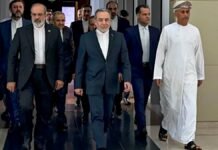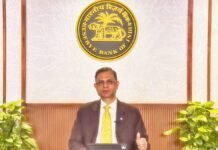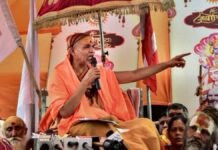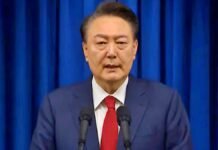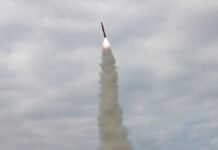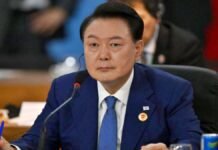
Key Points:
- Historic Trial: Yoon Suk Yeol is the first sitting South Korean president to face a criminal trial, charged with leading an insurrection.
- Martial Law Controversy: The charges stem from his brief declaration of martial law in December 2024, which was revoked within six hours.
- Potential Penalties: If convicted, Yoon could face life imprisonment or the death penalty, although South Korea has not executed anyone in decades.
- Political Turmoil: The trial has intensified political divisions in South Korea and raised questions about the resilience of its democracy.
- Parallel Proceedings: Yoon is also facing a Constitutional Court trial to determine whether his impeachment will be upheld.
Seoul: South Korean politics entered uncharted territory this week as impeached President Yoon Suk Yeol appeared in court for the first hearing of his criminal trial. Accused of leading an insurrection, Yoon’s case marks the first time in the nation’s history that a sitting president faces criminal prosecution. The trial has gripped the nation, highlighting deep political divisions and testing the strength of South Korea’s democratic institutions.
The Charges Against Yoon
Yoon’s legal troubles began on December 3, 2024, when he declared martial law during a televised address, citing threats from North Korea and alleged obstruction by opposition lawmakers. The declaration was met with widespread outrage, leading to its revocation within six hours by the National Assembly. Prosecutors allege that Yoon’s actions were a deliberate attempt to dissolve the legislature and detain lawmakers and election officials, constituting an insurrection.
Following his impeachment on December 14, Yoon was arrested in January after barricading himself in his residence. He was formally indicted on January 26 on rebellion charges, which carry severe penalties, including life imprisonment or death. However, South Korea has not carried out executions since 1997.
Defense Arguments
Yoon’s legal team argues that his actions were not intended to disrupt constitutional order but to alert the public to what he described as a “legislative dictatorship” by the opposition. His lawyer, Kim Hong-il, stated in court that the martial law declaration was a temporary measure aimed at addressing a national crisis.
Yoon himself has consistently denied any wrongdoing, framing the charges as politically motivated. He claims that his actions were necessary to protect South Korea from internal and external threats.
Political Implications
The trial has plunged South Korea into political chaos. Yoon’s impeachment and subsequent arrest have polarized public opinion, with conservative supporters rallying outside the court to demand his release. Meanwhile, liberal factions view the trial as a necessary step toward accountability.
The case also underscores broader concerns about democratic resilience in South Korea. Critics argue that Yoon’s actions represent an alarming attempt to consolidate power and undermine democratic norms. His trial is being closely watched both domestically and internationally as a test of South Korea’s legal and political systems.
Parallel Constitutional Court Proceedings
In addition to the criminal trial, Yoon is also facing proceedings in South Korea’s Constitutional Court. Judges are deliberating whether to uphold his impeachment or reinstate him as president. A decision is expected by early March. If reinstated, Yoon could face additional charges for abuse of power and corruption.
What Lies Ahead
The trial is expected to last several months, with prosecutors pushing for swift proceedings due to the gravity of the charges. If convicted of insurrection, Yoon could receive life imprisonment or potentially face execution—though legal experts believe a life sentence is more likely given that no deaths resulted from his actions.
This historic case has already left an indelible mark on South Korean politics, raising questions about leadership accountability and the balance of power within its democracy. As the nation awaits further developments, both supporters and critics of Yoon brace for what could be one of the most consequential trials in its history.




